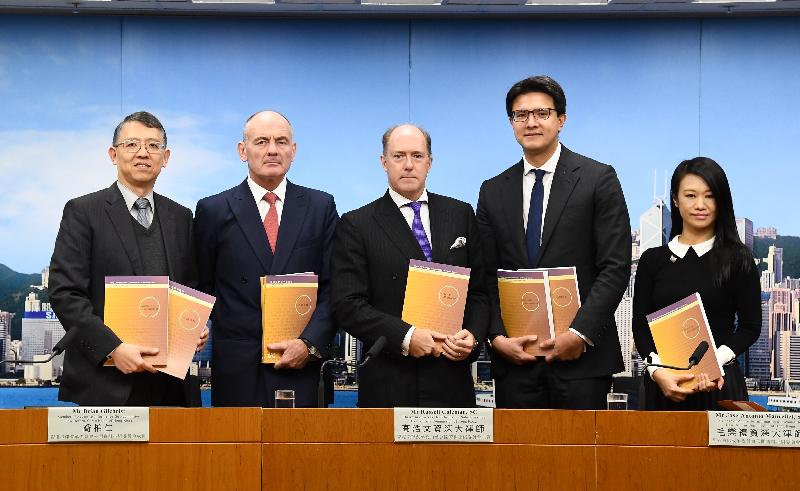The following is issued on behalf of the Law Reform Commission:
The Access to Information Sub-committee of the Law Reform Commission (LRC) is inviting public views on whether reform of the current regime of public access to information held by the Government is needed, and if so, what kind of reform is preferred.
Releasing the consultation paper in a press conference today (December 6), the Chairman of the Access to Information Sub-committee, Mr Russell Coleman, SC, said that the Sub-committee’s provisional views are that although the existing Code on Access to Information (the Code) is effective and cost-efficient, legislation should be introduced to implement an access to information regime with statutory backing.
At present, access to government-held information is based on an administrative regime set out in the Code, which has been in operation since 1995.
In deciding the key features of the proposed access to information regime, the Sub-committee has studied the law and practice of relevant common law jurisdictions, and found that the public’s need to obtain more information about public bodies should be balanced with other types of rights including privacy and data-protection rights, and third-party rights.
“The proposed legislative regime would have exempt information categorised into absolute and qualified exemptions, like most common law jurisdictions,” said Mr Coleman.
The Access to Information Sub-committee tentatively recommends to adopt as absolute exemptions the following categories of information:
- Information accessible to applicants by other means
- Court records
- Legislative Council privilege
- Information provided in confidence
- Prohibitions on disclosure
- Defence and security
- Inter-governmental affairs
- Nationality, immigration and consular matters
- Law enforcement, legal and relevant proceedings
- Legal professional privilege
- Executive Council’s proceedings
- Privacy of the individual
As for qualified exemptions, a public body has to balance the public interest for and against disclosure. The Sub-committee tentatively recommends to adopt as qualified exemptions the following categories of information:
- Damage to the environment
- Management of the economy
- Management and operation of the public service, and audit functions
- Internal discussion and advice
- Public employment and public appointments
- Improper gain or improper advantage
- Research, statistics and analysis
- Business affairs
- Premature requests
- Conferring of honours
- Health and safety
It is also the Sub-committee’s tentative recommendation that the proposed regime should have certain review and appeal stages. The first stage is internal review of the decision by preferably another officer or officer of a higher rank. The second stage is review by the Office of the Ombudsman. If the applicant is not satisfied, he can proceed to the third stage of appeal to the Court.
The recommendations include a proposed offence of altering or erasing records to prevent disclosure. “Where a request for information has been made to a public body, it should be an offence to alter, erase, destroy or conceal records with intent to prevent disclosure of records or information. However, any failure on the part of a public body to comply with a duty should not confer any right of action in civil proceedings,” said Mr Coleman.
Mr Coleman added that the provisional views expressed in the consultation paper are intended to facilitate discussion and do not necessarily represent the Sub-committee’s final conclusions. The Sub-committee would welcome views, comments and suggestions on any issues discussed in the consultation paper.
All views should be submitted on or before March 5, 2019 to: The Secretary, Access to Information Sub-committee, LRC (4/F, Justice Place, East Wing, 18 Lower Albert Road, Central, Hong Kong) by mail, by fax (3918 4096) or by e-mail (hklrc@hkreform.gov.hk).
The consultation paper and the executive summary can be accessed on the website of the LRC at
www.hkreform.gov.hk. Hard copies are also available on request from the Secretariat of the LRC at the above address.
read more



